What Does Anchorman Have to Do With Democracy?
Examining the connection between laughing at Ron Burgundy and the noxious politics of Jan. 6.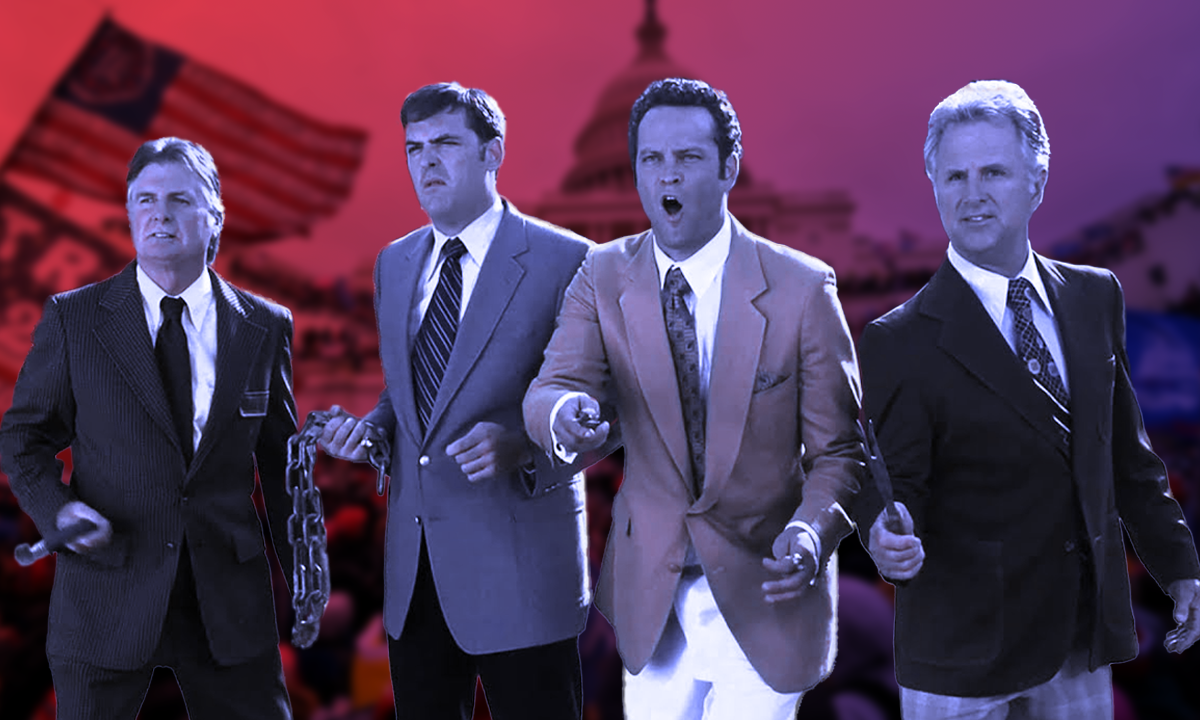 Image: Truthdig
Image: Truthdig
The following is an adapted excerpt from “Kind of a Big Deal: How Anchorman Stayed Classy and Became the Most Iconic Comedy of the Twenty-First Century,” to be published on August 22nd by Dutton books.
It passed in a moment. Frankly, I would not be surprised if I was the only person who caught it, or made anything of it. But hardly a day has passed since I heard it that I haven’t thought about it, pondered it, worried about it, wondered whether it meant everything or nothing at all.
It occurred on June 30, 2021, during a 40-minute New York Times video investigation into the hours on January 6 when American democracy was under siege. Just shy of the 15-minute mark, as chants of “Stop the steal!” ripple through the crowd, the camera pans across a sea of protesters with Trump beanies, Trump flags, and American flags curled up against their midsections. News has penetrated the crowd that the Capitol has been breached, and an impassioned male voice shouts, “You guys, they’re storming on the other side. Let’s go!” Before he has even finished getting out the words, another voice is heard, undercutting the authority and urgency of the first voice. “We’re going streaking!” this other voice bellows, with the sound of snickers muffling the end of his declaration.
I suspect that most culturally literate adults of a certain age would be able to instantly identify that quote, but given that I was already working on a book about Anchorman when the video premiered, I had to replay it numerous times, convinced I was having some kind of auditory hallucination. But the more times I listened, the more I was convinced that not only was someone shouting, “We’re going streaking!” but that they were doing their level best to imitate Will Ferrell’s Frank the Tank in one of the most famous, and funniest, moments from Old School.
It stunned me to hear someone, in this moment of maximal national chaos and horror, yank out their binder of Will Ferrell quotes from the early 2000s.
Old School is not Anchorman, and Frank the Tank is not Ron Burgundy. But it stunned me to hear someone, in this moment of maximal national chaos and horror, yank out their binder of Will Ferrell quotes from the early 2000s.
“We’re going streaking!” meant many things to me. It meant that whoever was shouting it saw the storming of the Capitol as a heroic jape, an instantly iconic act of comedic rebellion. But it also was a call in keeping with the ultra-right net brigade and their insistence that acts of extremism were all a joke, even when it was serious.
Here they were, thousands of Americans who had gathered from around the country to protest what they saw, without any proof whatsoever, as the theft of the presidential election, and even in that moment, someone saw the need to turn this, also, into a hilarious prank. The moment haunted me because it raised troubling questions about who this comedy was for, and what purpose it served. Were some of Ferrell’s biggest fans embracing the ugly ideas he was mocking?
These questions were natural lead-ins to another January 6 story with a more direct line to Anchorman: the story of FBI suspect #247.
In the aftermath of the storming of the Capitol, which had been copiously documented and shared on social media by its perpetrators, the FBI shared around photographs of its instigators, looking for clues from the general public to identify the faces in the crowd. Suspect #247 was a middle-aged white man with grey hair. He wore a camouflage-pattern gaiter-style mask over his face, leaving only his eyes exposed, a VIP badge on a lanyard, and a green leather jacket with a camouflage fleece shirt underneath. “The FBI is still seeking information on people who took part in the violence at the U.S. Capitol on January 6,” read a March 2021 tweet from the FBI that featured two photos of the suspect. “If you know this individual, visit tips.fbi.gov. Refer to photo 247 in your tip.”
People studied the photos of the man with the distinguished-looking gray hair. Jokes were made about the whereabouts of George Clooney on that day. Others posted links to the beloved 1990s sketch-comedy series Mr. Show, suggesting that suspect #247 bore a marked resemblance to acclaimed comedian Jay Johnston. People jokingly posted links to Johnston’s IMDB page. And then the strangest thing happened.
What had started as a joke took on a life of its own. Was that Jay Johnston? Could it be that the Anchorman performer, who had played Wes Mantooth’s lieutenant in the film, had actually traveled to Washington D.C. in order to participate in the violent protests led by the president of the United States?
It could.
“He said he was just at the protest and didn’t go into the Capitol physically, so I have to take him at his word on that. He hasn’t been convicted or served or arrested,” director Lucas Astrom, who had just directed Johnston in a film, told The Daily Beast. “But yeah, I asked him about it, and he said like, yeah, he was there, and he believed there was fraud and just wanted to show his support.”
Now that he has been arrested on charges related to his actions on January 6, I want to take a moment to think about why Jay Johnston’s presence in the mob of pro-Trump rioters feels so deflating and sad.
In the aftermath of January 6, the crux of the question that so many people were asking each other was “Who are these people?” Who were these fellow Americans so enthralled by Trump’s lies they were willing to drop everything, travel hundreds or thousands of miles, and be part of an unruly mob protesting an election? Who were these mysterious and deeply familiar others who were willing to destroy democracy in order to protect the ego of one thin-skinned man? Answers were not immediately forthcoming, and so for people of a certain pop-cultural bent, the presence of Jay Johnston was a helpful peg on which to hang our feelings.
For our story’s purposes, we had last seen Johnston standing manfully alongside Vince Vaughn as the warring newsrooms were about to show down in Anchorman. Johnston was, truthfully, not a major part of the finished product, although he had played a notable role in the early development of the Anchorman script, playing Brick Tamland in read-throughs that had helped McKay and Ferrell polish their story. But Johnston’s presence at the Capitol is a dispiriting reminder that there is no escape anymore from the disastrous condition of American political and social life. Everywhere we might turn in the frothy, escapist spheres of entertainment, whether it was sports or comedy or the movies, there was another famous person intent on wholeheartedly contributing to the most noxious currents in America.
I could not stop thinking about Johnston, a man I did not know, and after a time, his face began to merge with the unseen face of the voice shouting “We’re going streaking!” in the New York Times video. It should go without saying that neither Adam McKay nor Will Ferrell was in any way to blame for those four terrible hours at the Capitol. But it was worth wondering whether a certain style of joke, one that required its audience to appreciate the layers of irony baked into its presentation, had been weaponized by others to take an ideological perspective that sought to deny others their most basic rights and make it seem fun and charming. If Ron Burgundy could say crude things about women while making us laugh, it was only a short step to others hijacking his brand of japery and transforming it into a just-joking-unless-you-like-what-I-said brand of ideology-as-entertainment. I thought about that unknown man summoning the spirit of Old School to commit a crime against the American body politic, and my anger and frustration at the ways in which jokes could be turned into tools to hurt others boiled over. Bad fans were out there, and they were not just spoiling my enjoyment of comedy; they were spoiling America itself.
January 6 was the anti-comedy, a tragedy of the ongoing dissolution of our collective democratic bonds acted out by people who might have thought that storming the Capitol was like a slightly more adult version of a drunken streak through campus.
What was the connection between comedy and this new brand of noxious politics, anyway? The answer would likely fill ten books of this size, but I would hazard a guess that part of what united them was the notion of granting a permission structure. Good comedy allows the audience to laugh at something that was bothering them that had previously gone unnoticed or unremarked on. Comedy makes us notice something odd or foolish or fanciful, and then grants us permission to laugh. The repulsive politics of the anti-democracy right was also about a permission structure, taking atomized, disaffected individuals and granting them permission to act on their beliefs.
We laugh at movies like Anchorman because it encourages us to find amusement in Ron Burgundy’s excesses, which were not to be taken seriously or literally. Trump had similarly provided permission to act out in a fashion that polite society eschewed, and the difference was that instead of chuckling softly to themselves on their couches, these men and women were smashing windows, attacking police officers, and threatening the murder of elected officials. January 6 was the anti-comedy, a tragedy of the ongoing dissolution of our collective democratic bonds acted out by people who might have thought that storming the Capitol was like a slightly more adult version of a drunken streak through campus.
The horror of January 6 stemmed from the creeping belief that, for many of the participants in the chaos at the Capitol, sedition could be a hoot. Watching and rewatching the footage of the day, it is clear that for a significant chunk of the participants, especially young men in their 20s and 30s who might be the target audience for movies like Anchorman, threatening American democracy was the most fun they had had in years. If movies like Old School and Anchorman were about the antics of disaffected men finding comfort in the company of like-minded allies, January 6 was like the nightmarish inversion of those stories, with the presence of Johnston and the unidentified Old School fan serving as confirmation. None of which was to find any fault with Anchorman itself, or to lay any of the blame for the nightmarish state of American society at its feet. But it was a reminder that we could no longer assume that we could see things the same way, or understand what we were watching in uniform fashion—if we ever could.
Comedy does not bear responsibility for the dimming of democracy in the United States. But people who love these very comedies—people who helped make these comedies!—saw fit to participate in actions that put our democracy at risk.
Comedy is, at heart, the democratic spirit in action. It stipulates that everyone is equal, if only in their capacity for foolishness, and that everyone is invited to participate in the work. It is generous and communal where so much of American politics has become cruel and atomizing. Laughter requires the imagination of a community of people coming together, either physically or spiritually, and finding shared pleasure in the spectacle of others’ absurdity. If we want to protect comedy, we must protect democracy.
Your support matters…Independent journalism is under threat and overshadowed by heavily funded mainstream media.
You can help level the playing field. Become a member.
Your tax-deductible contribution keeps us digging beneath the headlines to give you thought-provoking, investigative reporting and analysis that unearths what's really happening- without compromise.
Give today to support our courageous, independent journalists.
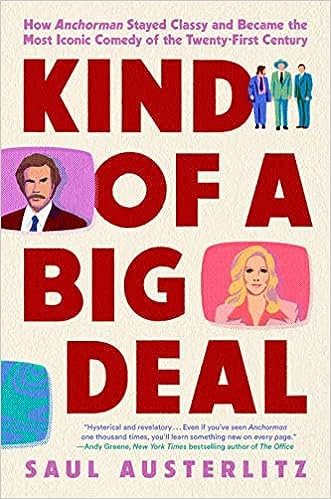

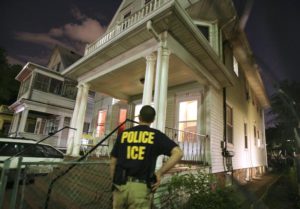
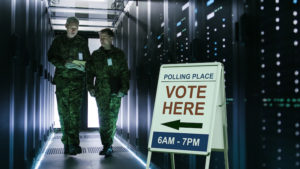

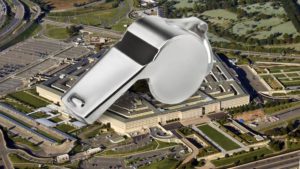

You need to be a supporter to comment.
There are currently no responses to this article.
Be the first to respond.